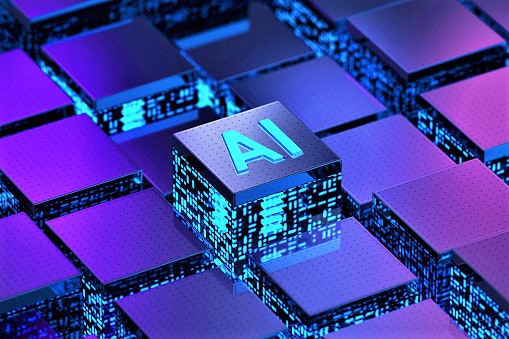In the ever-evolving landscape of technology, artificial intelligence (AI) continues to be a driving force behind transformative changes across industries. As we delve into the year 2023, businesses are on the cusp of embracing remarkable AI trends that promise to reshape their operations, customer interactions, and growth strategies. In this comprehensive article, we will unveil the top 10 AI trends that are set to revolutionize businesses in 2023.

Autonomous Decision-Making Systems
AI-powered decision-making systems are gaining momentum, enabling businesses to streamline processes and optimize resource allocation. From supply chain management to financial forecasting, these systems leverage data to make informed decisions, minimizing errors and maximizing efficiency.
Hyper-Personalization
Hyper-personalization takes customer experience to new heights. Through AI-driven insights, businesses can create tailored offerings, recommend products, and deliver content that resonates with individual preferences, enhancing engagement and loyalty.
AI-Powered Cybersecurity
As cyber threats become more sophisticated, AI is stepping in to fortify cybersecurity. Advanced algorithms can predict, detect, and prevent cyberattacks in real-time, safeguarding sensitive business data and maintaining digital trust.
Human-AI Collaboration
The synergy between humans and AI is becoming a cornerstone of productivity. AI handles repetitive tasks, allowing employees to focus on creativity and strategic thinking, fostering innovation within businesses.
AI in Healthcare Diagnostics
The healthcare industry is witnessing a revolution with AI-assisted diagnostics. From image analysis to pattern recognition, AI algorithms enhance the accuracy of medical diagnoses, leading to early interventions and improved patient outcomes.
Conversational AI and Customer Support
Conversational AI, including chatbots and virtual assistants, is reshaping customer support. Businesses can provide instant assistance, answer queries, and resolve issues 24/7, elevating customer satisfaction.
AI-Backed Sustainability Solutions
AI is playing a pivotal role in addressing environmental challenges. Businesses are utilizing AI to optimize energy consumption, reduce waste, and make sustainable choices throughout their operations.
Predictive Analytics for Business Strategy
AI-powered predictive analytics delve into historical and real-time data to forecast future trends. This empowers businesses to make proactive decisions, anticipate market shifts, and stay ahead of the competition.
Enhanced E-Commerce Experiences
E-commerce platforms are integrating AI to offer immersive shopping experiences. Virtual try-ons, personalized recommendations, and real-time assistance replicate in-store interactions, fostering customer loyalty in the digital realm.
AI-Infused Content Creation
AI-generated content is revolutionizing marketing strategies. From automated copywriting to video production, businesses can produce a vast amount of high-quality content in a fraction of the time, fueling engagement and brand visibility.

FAQs:
How will autonomous decision-making systems impact businesses?
Autonomous decision-making systems leverage AI algorithms to process data and make informed choices without human intervention. This will streamline operations by reducing delays and errors in decision-making processes. Businesses can achieve higher efficiency, optimize resource allocation, and respond to dynamic market conditions more effectively.
What are the key benefits of hyper-personalization in business?
Hyper-personalization tailors products, services, and content to individual customer preferences. This enhances customer engagement, loyalty, and satisfaction. Businesses can offer recommendations that align closely with each customer’s needs, leading to increased conversion rates, higher revenue, and stronger brand loyalty.
How does AI contribute to enhancing cybersecurity measures?
AI enhances cybersecurity by analyzing vast amounts of data to detect patterns indicative of cyber threats. It can identify anomalies, predict potential breaches, and even autonomously respond to attacks in real-time. This proactive approach strengthens defenses, reduces the risk of data breaches, and safeguards sensitive information.
Can you explain the concept of human-AI collaboration in the workplace?
Human-AI collaboration involves leveraging AI to handle routine tasks, allowing human employees to focus on tasks that require creativity, critical thinking, and complex decision-making. This collaboration enhances productivity, fosters innovation, and creates a more efficient work environment.
What role does AI play in improving healthcare diagnostics?
AI aids healthcare diagnostics by analyzing medical data such as images, test results, and patient records. AI algorithms can detect subtle patterns that human eyes might miss, leading to more accurate and timely diagnoses. This results in early detection of diseases and improved patient care.
How are conversational AI and chatbots transforming customer support?
Conversational AI and chatbots provide instant and personalized customer support around the clock. They can answer queries, guide users through processes, and resolve issues, enhancing customer satisfaction. This technology reduces response times, ensures consistent support quality, and frees up human agents for more complex interactions.
In what ways can AI be employed for sustainability initiatives?
AI contributes to sustainability by optimizing resource usage, such as energy and raw materials. It can predict energy demand, monitor environmental impact, and suggest efficiency improvements. AI-powered data analysis helps businesses make eco-friendly decisions, reducing waste and supporting sustainable practices.
How does predictive analytics assist in shaping effective business strategies?
Predictive analytics uses historical and real-time data to forecast future trends and outcomes. This assists businesses in making data-driven decisions, anticipating market shifts, and adjusting strategies accordingly. It minimizes risks, identifies growth opportunities, and enhances overall business agility.
What are the advantages of incorporating AI into e-commerce platforms?
Integrating AI into e-commerce platforms enhances customer experiences. AI-driven personalized recommendations increase sales by showcasing products tailored to each customer’s preferences. Additionally, virtual try-ons, chatbots, and streamlined checkout processes create a seamless shopping journey, boosting customer satisfaction and loyalty.
How is AI redefining content creation and marketing approaches?
AI automates content creation processes, generating high-quality text, images, and videos at scale. This enables businesses to maintain an active online presence and engage with their audience consistently. AI-driven insights also guide marketing strategies by analyzing consumer behavior, leading to more targeted and effective campaigns.
Conclusion
In conclusion, the year 2023 marks a pivotal moment for businesses as AI trends continue to redefine how they operate and interact with customers. Embracing these trends will not only drive efficiency but also unlock new avenues for innovation and growth. By harnessing the power of AI, businesses can stay competitive, agile, and future-ready in a rapidly changing landscape.
